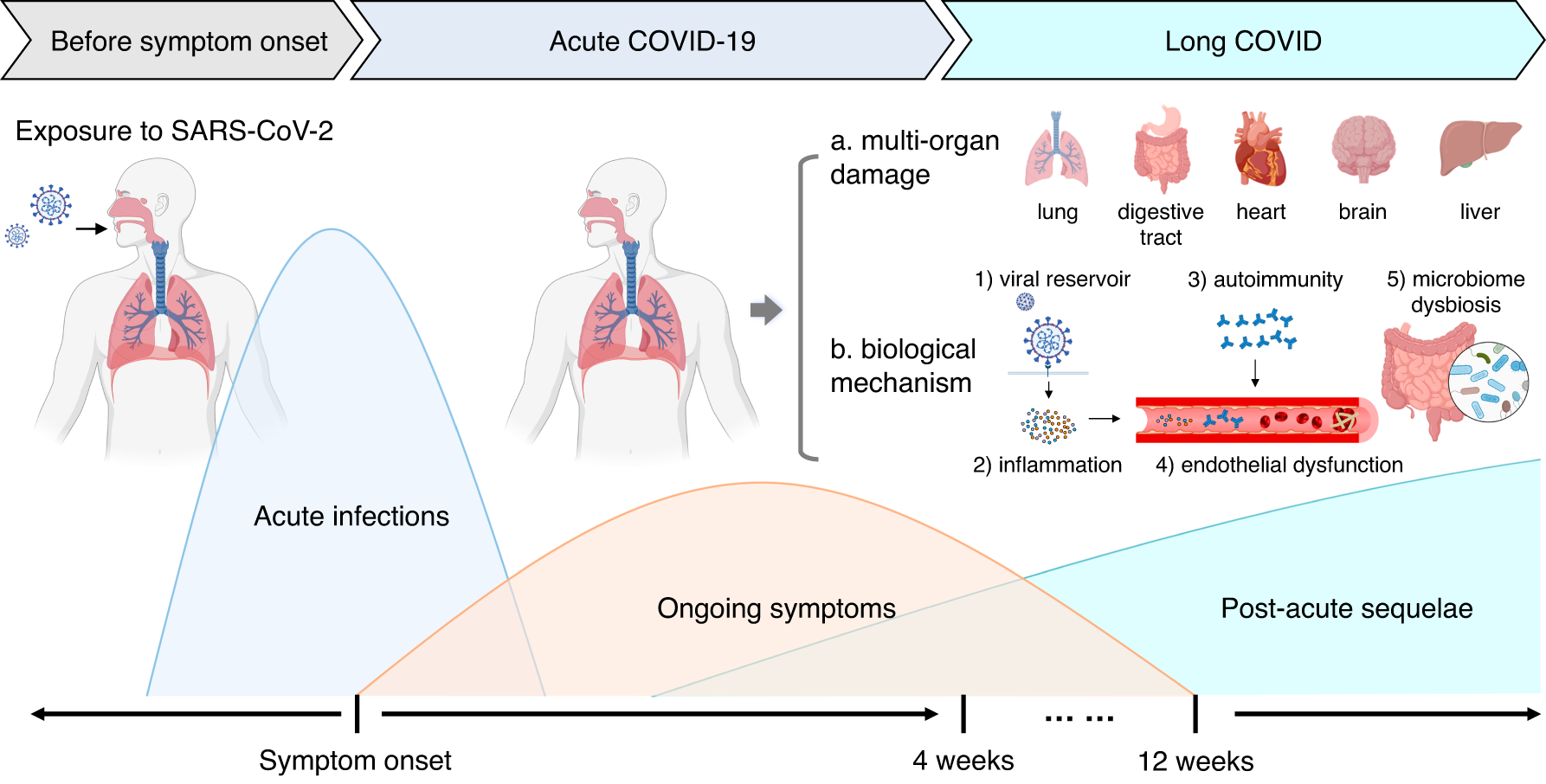New research indicates that the impacts of COVID-19 are not only long-lasting but also continue to evolve. A study published on May 30 in Nature Medicine reveals that patients who were hospitalized with COVID-19 face significantly elevated risks of death or worsening health due to long COVID complications even three years after their initial infection.
The study, the largest of its kind, tracked over 130,000 patients and found that even those who did not require hospitalization during their initial bout with COVID-19 remained at risk for long COVID and related health issues. Long COVID leads to 91 disability-adjusted life years (DALYs) per 1,000 people, a higher incidence than either heart disease or cancer.
“People are developing new-onset disease as the result of an infection that they had three years ago,” says Dr. Ziyad Al-Aly, a clinical epidemiologist at Washington University in St. Louis and lead author of the study. “It challenges the notion that these viruses are sort of self-contained or that, after the acute first phase, they become inconsequential.”
The study shows that the primary complications for those with mild initial COVID cases predominantly affect the neurological, gastrointestinal, and pulmonary systems. Meanwhile, those who were hospitalized face ongoing risks across seven organ systems, including severe conditions such as strokes, heart attacks, heart failure, and even Alzheimer’s disease.
The research included patients from the Veterans Affairs St. Louis Health Care system, meaning the demographic skews more male, white, and older than other studies might. Despite this, the findings underscore the severe and lasting impacts of COVID-19.
“The data are encouraging in that there were no new onset adverse health problems found in the third year after infection,” says Akiko Iwasaki, director of the Center for Infection & Immunity at the Yale University School of Medicine. However, she cautions that some post-acute infection illnesses can emerge years later, necessitating ongoing long-term follow-up studies.
For those whose initial COVID cases required hospitalization, the long-term risks are particularly stark, emphasizing the importance of interventions like vaccinations and antivirals. “Preventing hospitalization is very important,” Al-Aly says.
The study found that the risk of new long COVID complications declines over time for both hospitalized and non-hospitalized patients. However, the risk of death becomes insignificant after the first year among non-hospitalized patients. For hospitalized individuals, the risk of death remains elevated even in the third year, with a significant burden of disease.

“The difference in DALYs between the two groups should not be interpreted to mean that people with long COVID from less severe acute disease are not suffering greatly as a result of their long COVID symptoms,” says Dr. David Putrino, director of the Cohen Center for Recovery from Complex Chronic Illness at Mt. Sinai School of Medicine.
The persistent presence of long COVID reinforces the notion that this virus is unlike ordinary viruses. Scientists believe factors such as viral persistence, chronic inflammation, and immune system dysfunction play roles, though more research is needed.
As for the future, the definition and duration of long COVID remain uncertain. Al-Aly describes COVID as a complex web of over 80 different health problems, some of which, like stroke or heart disease, could affect patients for life. “We don’t know what’s going to happen at 10 years,” he says.
Read More: Alabama Reports First Case of Rare Mosquito Virus Also Found in Florida!
Mother Teaching 11 Kids at Home Happy About Extra Money from State Program!
Researchers continue to push for accelerated trials for long COVID treatments, criticizing early efforts as slow and ineffective. Appearing before a U.S. Senate committee in January, Al-Aly emphasized the need for more ambitious and faster-paced trials to address the millions affected by COVID-19 in the U.S. and globally. “We need to be much bolder and much more ambitious with our trials,” Al-Aly says. “At the glacial pace that they’re going, we’re unlikely to get any definitive answers for decades to come.”







+ There are no comments
Add yours